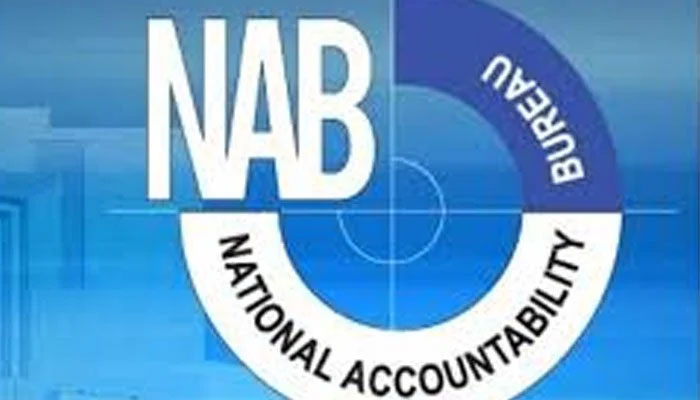NAB in focus: Decision taken to remove chairman, amend laws
The term of NAB Amendment Ordinance will expire on June 02, and after the lapse of the ordinance, the incumbent chairman will cease to hold his office
ISLAMABAD: The government has decided to remove National Accountability Bureau (NAB) Chairman Justice (R) Javed Iqbal on technical grounds as the ordinance giving him validity to work as chairman of the anti-corruption watchdog will expire on June 02.
According to sources, the term of NAB Amendment Ordinance will expire on June 02, and after the lapse of the ordinance, the incumbent chairman will cease to hold his office. According to the NAB Amendment Ordinance, the NAB chairman, after the expiry of his term, was allowed to perform as the head of the bureau till the appointment of his successor. Hence, the chairman was holding the office on an interim basis. However, after the expiry of the ordinance, Javed Iqbal will no longer be in a position to continue his services.
Meanwhile, in an important development, the federal cabinet in its meeting on Tuesday also decided to amend NAB laws and approved the constitution of a committee for it. The committee will be headed by the law minister and comprise leading experts of law, banking, bureaucracy and other sectors.
During the detailed discussion on amendments to the NAB law, the cabinet members termed it “black legislation which has been used for political victimisation and an harassment of government employees and business community.” They said the bureaucracy was also reluctant to take decisions on important issues because of the existing NAB law.
The government has proposed 31 amendments to change the purview of NAB’s action in the pretext of corruption, said the sources. As per proposed amendments, the disqualification in the corruption cases will last maximum for five years instead of 10 years and the person disqualified for corruption will be eligible to contest election after five years.
An accused will be allowed to hold public office till the exhaustion of all appeals against the punishment in the corruption case. As per proposed amendments, the NAB’s authority to arrest an accused will be abolished and the bureau could arrest the accused only after the consent of the court.
NAB will not hold an inquiry over a five-year old transaction or matter. In a bid to start an inquiry, the onus lies on Bureau to provide evidence against the accused. The anti-corruption watchdog will not have an authority to proceed against the decisions of the prime minister, cabinet members and cabinet committees while the pending inquiries and under trial cases will be transferred to the relevant authorities associated to the accountability courts.
NAB could not file a corruption case against the politicians and bureaucrats without proving that they gained financial benefits. Besides, the bureau could not take any action against the decisions of politicians and bureaucrats where there is no mala-fide intention involved.
The prosecutor general NAB will be appointed by the president after the consultation between the prime minister and the leader of the opposition. As many as seven clauses of the NAB Ordinance will be abolished through proposed amendments and the amendments will be effective from 1985, and they will be applicable on all under trial and under investigation cases.
Sources said that the government will consult the draft of the proposed amendments with its coalition partners and Pakistan Tahreek-e-Insaf. Later, the final draft will be sent to the cabinet. They said that PTI, PMLN and PPP will be the biggest beneficiary of the NAB amendments.
-
 James Van Der Beek's Friends Helped Fund Ranch Purchase Before His Death At 48
James Van Der Beek's Friends Helped Fund Ranch Purchase Before His Death At 48 -
 King Charles ‘very Much’ Wants Andrew To Testify At US Congress
King Charles ‘very Much’ Wants Andrew To Testify At US Congress -
 Rosie O’Donnell Secretly Returned To US To Test Safety
Rosie O’Donnell Secretly Returned To US To Test Safety -
 Meghan Markle, Prince Harry Spotted On Date Night On Valentine’s Day
Meghan Markle, Prince Harry Spotted On Date Night On Valentine’s Day -
 King Charles Butler Spills Valentine’s Day Dinner Blunders
King Charles Butler Spills Valentine’s Day Dinner Blunders -
 Brooklyn Beckham Hits Back At Gordon Ramsay With Subtle Move Over Remark On His Personal Life
Brooklyn Beckham Hits Back At Gordon Ramsay With Subtle Move Over Remark On His Personal Life -
 Meghan Markle Showcases Princess Lilibet Face On Valentine’s Day
Meghan Markle Showcases Princess Lilibet Face On Valentine’s Day -
 Harry Styles Opens Up About Isolation After One Direction Split
Harry Styles Opens Up About Isolation After One Direction Split -
 Shamed Andrew Was ‘face To Face’ With Epstein Files, Mocked For Lying
Shamed Andrew Was ‘face To Face’ With Epstein Files, Mocked For Lying -
 Kanye West Projected To Explode Music Charts With 'Bully' After He Apologized Over Antisemitism
Kanye West Projected To Explode Music Charts With 'Bully' After He Apologized Over Antisemitism -
 Leighton Meester Reflects On How Valentine’s Day Feels Like Now
Leighton Meester Reflects On How Valentine’s Day Feels Like Now -
 Sarah Ferguson ‘won’t Let Go Without A Fight’ After Royal Exile
Sarah Ferguson ‘won’t Let Go Without A Fight’ After Royal Exile -
 Adam Sandler Makes Brutal Confession: 'I Do Not Love Comedy First'
Adam Sandler Makes Brutal Confession: 'I Do Not Love Comedy First' -
 'Harry Potter' Star Rupert Grint Shares Where He Stands Politically
'Harry Potter' Star Rupert Grint Shares Where He Stands Politically -
 Drama Outside Nancy Guthrie's Home Unfolds Described As 'circus'
Drama Outside Nancy Guthrie's Home Unfolds Described As 'circus' -
 Marco Rubio Sends Message Of Unity To Europe
Marco Rubio Sends Message Of Unity To Europe




